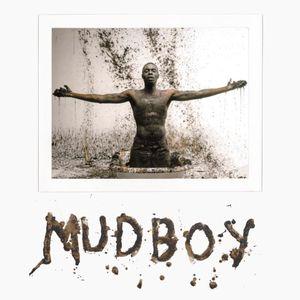After the soaring success of his track “Mo Bamba,” rapper Sheck Wes manages to create an impressively produced and eclectic trap album with his debut “Mudboy,” cementing his place as a rapper to keep watching despite the lyrical shortcomings.
Harlem-based Wes quietly posted his breakout track “Mo Bamba,” named after Orlando Magic center and childhood friend Mohamed Bamba, on SoundCloud in June 2017. Yet the track’s popularity did not skyrocket until a year after the single’s release. By the time the song debuted on the Billboard charts, Wes had already earned a joint record deal from Travis Scott’s Cactus Jack Records and Kanye West’s G.O.O.D. Music.
“Mudboy” capitalizes on the acclaim “Mo Bamba” received and further affirms his status as one of rap’s budding stars. Yet “Mudboy” never quite reaches the heights of the carefree club banger “Mo Bamba,” which was put together in 20 minutes and features a beat cut off midway through that can be heard across college campuses and basketball arenas alike.
Much of the track’s popularity can be attributed to the rising star Mo Bamba himself, who was drafted sixth overall in the NBA draft in June 2018, coinciding with the song’s ascension in popularity. Nevertheless, Wes remains the shining star on the track with his passionate and energetic vocals, heard over driving synthesizers and punctuated by ad-libs after nearly every line, combining to create arguably the catchiest trap rap song of 2018.
After the success of his breakout track, Wes had a lot to prove with “Mudboy,” a 14-track album with no features executively produced by Wes. The two other singles that preceded the release of the album, “Chippi Chippi” and “Live Sheck Wes,” made up nearly the entirety of Wes’ discography before the release of the album and are similarly energetic but devoid of lyrical meaning. Wes’ one-dimensionality and seemingly limited song-making ability called into question his staying power in rap for some.
Wes more than proves himself, though, from the first track of the album. Wes establishes himself as not another run-of-the-mill SoundCloud rapper with the track “Mindf—-r,” which opens with 90 seconds of instrumental backing, carefully cultivating the atmosphere of the LP.
The first five songs, including the standout “Wanted,” are all bursts of energy that few artists today can match. The tracks also outline much of what becomes Wes’ signatures on the album, in the ad-libs on songs like “Mudboy” and “B—h,” as well as his references to himself in the third person.
The sixth track on the LP, “Never Lost,” provides a brief respite from the overwhelming energy permeating the beginning of the LP. The low-key track, produced by WondaGurl, who has worked extensively with Travis Scott, features breathy singing and rapping by Wes, who croons longingly about his upbringing in Harlem. Wes raps about how he started slipping into crime and how his mother sent him to Senegal, where his family is from, to reform himself. The months Wes spent in Africa clearly had a significant impact on his life, as they are mentioned multiple times throughout the latter half of the LP.
The next few tracks on the album speak to Wes’ connection to the basketball world. Wes was a star player when in high school until an injury ended his career early. He raps candidly about not paying attention in school, choosing instead to watch ESPN and lamenting about how he could have been a regular on ESPN highlight reels if he had been healthy. “Kyrie” is another banger in the vein of “Mo Bamba”; in the song, Wes compares himself to Boston Celtics players Jayson Tatum and Kyrie Irving.
The second half of the album again pivots back to Wes’ upbringing and time in Africa with the personal track “Jiggy on the S—s.” On this track, Wes makes the standout choice to rap the majority of the bridge in Wolof, the native language of Senegal, speaking about how his mother left him in Africa with no identification or passport. Wes also points out that no other rappers switch up their languages in rap. Still, the shortcomings in Wes’ songwriting ability are evident on this track: Outside of the bridge, Wes barely does more than repeat and slightly alter the central refrain to fit his message.
The atmosphere created by Sheck Wes is one few modern trap artists can match. The cohesiveness of the album is readily apparent and unparalleled by many of his up-and-coming contemporaries. His lyrical deficiencies are made up for with stellar production, and initial fears about the lack of features are quickly remedied by Wes’ dynamic song styles on the LP. Among the most fun and eclectic trap releases of the year, the solid debut album “Mudboy” solidifies Wes’ place in the rap industry and assures his status as more than just another one-hit wonder.









